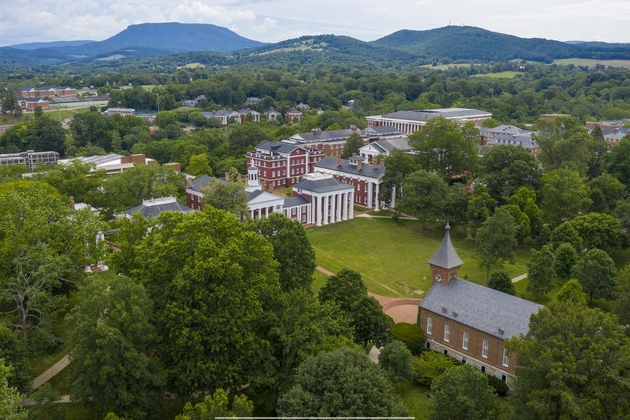
Small liberal arts colleges across the nation are venturing into new territory by enlisting the support of Washington lobbyists. This move is aimed at setting themselves apart from the Ivy League institutions that have been under scrutiny in President Donald Trump’s higher education debates.
While handling government relations has traditionally fallen under the purview of college presidents, recent reports indicate a shift in strategy. At least five of the top 20 liberal arts colleges listed by U.S. News & World Report have made the unprecedented decision to hire lobbyists. These colleges include Williams College, Pomona College, Claremont McKenna College, Davidson College, and Washington and Lee University. Despite these developments, the institutions in question either declined to comment or did not respond to interview requests.
According to Steven Bloom, the Assistant Vice President for Government Relations at the American Council on Education, some colleges view external expertise as a necessary addition to their existing efforts due to perceived risks.
The lobbying firms engaged by these colleges, such as Lewis-Burke Associates, theGroup DC, and Brownstein Hyatt Farber Schreck, underscore the seriousness of the situation. Notably, Holland & Knight emerged as a prominent player, securing substantial earnings from Washington and Lee University and Claremont McKenna College. The lobbying firms, however, refrained from offering comments on their engagements.
A significant driver behind these lobbying arrangements, as indicated by disclosure reports and insiders, is the looming threat of an expanded endowment tax. Introduced in 2017 at a rate of 1.4%, this tax targets university investment income and forms part of Trump’s tax reform measures.
The application of the tax hinges on specific criteria, impacting schools with over 500 paying students and endowments exceeding $500,000 per student. Consequently, larger institutions with extensive enrollments can bypass the tax, while smaller colleges with modest endowments but fewer students find themselves liable.
Recent discussions among House Republicans have hinted at a potential revamp of the tax structure, proposing varying rates based on endowment sizes. This proposal, although not finalized, would subject schools with substantial endowments to significantly higher tax rates.
Concerns over the evolving tax landscape have led approximately 30 schools, including those that recently secured lobbying services, to form a consortium. This collaborative effort aims to streamline strategies and address shared challenges arising from the tax regulations.
Notably, some colleges are keen on distinguishing themselves from Columbia University, a key player that currently evades the endowment tax. In light of this discrepancy, discussions are underway to align tax criteria with Columbia’s status, driving ongoing adjustments.
For institutions like Washington and Lee University, the emphasis lies on showcasing contrasts to lawmakers, particularly in the absence of student protests akin to those witnessed at Columbia. With a considerable endowment and tax obligations, Washington and Lee is leveraging its unique position to advocate its interests.
Wabash College, situated near Indianapolis, finds itself on the cusp of tax liability due to its student body size and endowment value. Engaging the services of Barnes & Thornburg, the college is proactively addressing potential tax implications through strategic lobbying efforts.
Amidst these developments, the broader context of higher education comes into play. The Trump administration’s funding cuts to universities, coupled with regulatory changes, have fueled tensions within the sector. Some colleges are leveraging lobbying as a means to communicate their narrative effectively amidst political uncertainties.
As colleges navigate these challenges, the role of lobbyists becomes instrumental in articulating their interests in a digestible manner. By collaborating with government relations partners, colleges like Wabash aim to ensure their stories resonate with diverse stakeholders.
Benjamin Guggenheim contributed to this report











